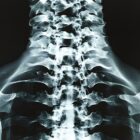If you’re reading this, you’re likely suffering from the debilitating symptoms that come with trigeminal neuralgia. While it may feel as though there is no end in sight to the pain and discomfort, there are treatments and procedures that can provide pain relief for your trigeminal neuralgia symptoms.
The Basics of Trigeminal Neuralgia
Trigeminal neuralgia (TGN) is a trigeminal nerve disorder. It is typically caused by a vein or artery compressing the trigeminal nerve near the base of the skull, but it can also be caused by damage to the myelin (the outer, protective coating) of a nerve.
Trigeminal neuralgia causes pain that is limited to one side of your face. It’s often excruciating and described as a stabbing, shooting or electric shock-like sensation that occurs intermittently. In some cases, it can be debilitating and disrupt your daily activities. Exposure to cold, brushing against your cheek or chewing can sometimes exacerbate the severity.
Will There Be Any Pain After Microvascular Decompression Surgery?
Finding Pain Relief for Trigeminal Neuralgia
Trigeminal neuralgia doesn’t have to take over your life. There are numerous treatments — including medications and surgery — that can help you find the relief you’ve likely been seeking since the onset of your condition.
Medication for Trigeminal Neuralgia
Most doctors will initially take a conservative route and recommend medication as a first line of defense against TGN symptoms. There are two medications that are routinely used for the treatment of trigeminal neuralgia: Tegretol and Trileptal. Both of these medications are anticonvulsants and have proven to be effective for some people suffering from TGN. Narcotic painkillers are not recommended for TGN symptoms, as not only are they not particularly effective, but they’re also highly addictive.
Some people may not find the level of relief they need through the use of medications. Others experience unwanted side effects that outweigh the benefits. If this the case for you, other treatments will be recommended to treat your TGN symptoms.
Luckily, if you’ve explored the medication route for obtaining pain relief for trigeminal neuralgia and decided it’s not for you, there are other treatments available.
Surgical Intervention for Trigeminal Neuralgia
A specific type of surgery is available to treat TGN that is designed to directly address the cause of your pain (compression of your trigeminal nerve from a blood vessel, also known as an impingement). This particular procedure is called microvascular decompression (MVD) surgery.
To determine if you’re a good candidate for MVD, you must be in good health and undergo a special imaging study known as a FIESTA MRI. This MRI will allow doctors and radiologists to determine whether your TGN is due to an impingement.
MVD is performed in a hospital under general anesthesia. Your surgeon will make a small incision in your scalp at the base of your skull. A quarter-sized piece of bone will be removed to allow access to the nerves and structures located in that area. Using tiny instruments, the nerve and blood vessel will be distinguished from the surrounding tissues. Your surgeon will then place a tiny Teflon cushion between the nerve and artery, creating a buffer between the two. MVD is usually effective right away and doesn’t compromise the function of the nerve in any way.
Gamma Knife Radiosurgery for Trigeminal Neuralgia
If it’s been determined you’re not a good candidate for MVD, Gamma Knife Radiosurgery (GKRS) is an excellent option. Despite being called “radiosurgery,” there are no incisions made — Gamma Knife Radiosurgery is relatively non-invasive.
Gamma Knife Radiosurgery uses around 200 tiny beams of moderately concentrated radiation that enter your body separately but then converge on a finely tuned target. The individual beams themselves are not strong enough to cause damage to the tissues they pass through. Once they are combined with the other beams, however, the dose is large enough to bring about a therapeutic change. Most people only require one treatment and are conscious for the entire procedure. It is typically performed on an outpatient basis.
You may experience headaches for a short period of time after GKRS, but they will eventually abate. The effects of Gamma Knife Radiosurgery are seen gradually — usually within a few months, at which time the trigeminal symptoms you will have hopefully decreased or abated.
Trigeminal Neuralgia and Percutaneous Rhizotomy
If you’re not a candidate for the aforementioned treatments, percutaneous rhizotomy is another available treatment for TGN. This procedure involves using a local anesthetic with conscious sedation. The surgeon then passes a needle-like probe to one or more of the trigeminal nerve branches. Heat, glycerol or balloon compression is used to cause damage to the nerve and render it incapable of producing the painful impulses.
Pain Stimulator Placement for Trigeminal Neuralgia
Another viable option for relief from TGN is pain stimulator placement. This involves threading tiny electrodes under the skin to the offending branch(es) of the trigeminal nerve. These electrodes are connected to a stimulator that, when activated, produces small electrical currents that interrupt the painful nerve impulses. A trial will first be conducted to make sure that this is the right option for you — once it’s determined that it is effective, a permanent stimulator will be placed under your skin.
Alternative and Natural Treatments for Trigeminal Neuralgia
To date, there are no known alternative trigeminal treatments that have been proven to relieve TGN pain. Complementary therapies such as massage, acupuncture or hydrotherapy can help you to relax, which may indirectly increase the efficacy of any conventional treatment you do choose. Always be sure to discuss with your doctor or surgeon your intentions of seeking complementary treatments to ensure that they are compatible.
You don’t have to live with the pain and debilitation that comes with trigeminal neuralgia. Numerous treatment options are available to you — talk with your doctor to determine which one may be the best choice for you and your lifestyle.

About Neurosurgeons of NJ
Introducing our team of board certified physicians dedicated to bringing you the latest developments and treatment options. We strive to produce the most clarified & clear content to help you make informed decisions on your medical journey. The road to feeling like your true self should not feel lonely- Let us help you. Please call us to schedule a consultation and speak to one of your team members.
Recent Posts:

Celebrities Who Have Had Brain Aneurysms
Please call today to schedule a consultation with us.
(551) 284-3265
Request a consultation with the Facial Wellness Team









